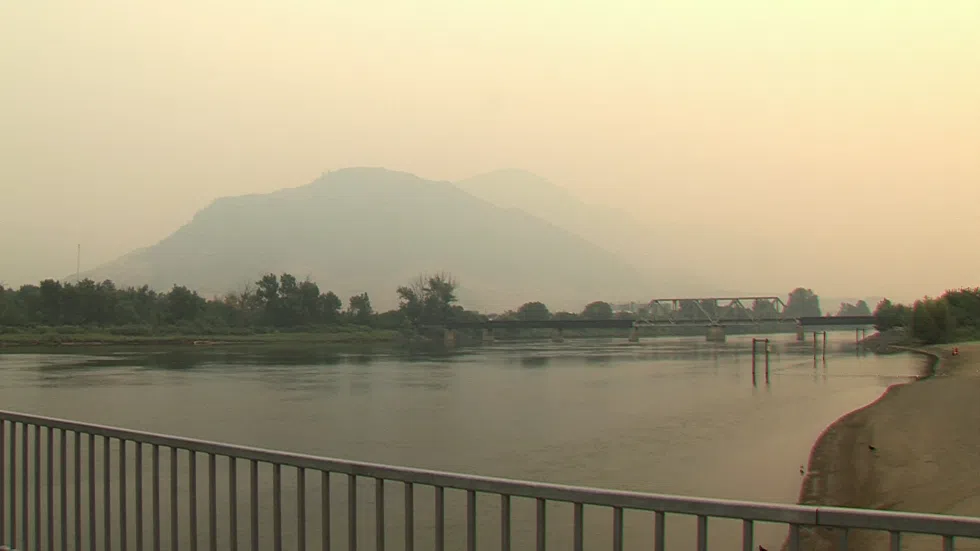
Self-evacuating due to smoky skies not best practice: EMBC
KAMLOOPS — With wildfire season just around the corner, the threat of smoky skies is bound to return to several parts of the province.
During the past two summers, Air Quality Health Index (AQHI) ratings have been through the roof for sometimes weeks at a time across B.C., but specifically in the Southern Interior.
While Kamloops typically plays host to evacuees from places like Williams Lake and Prince George when wildfires threaten communities, the thick smoke that blankets our skies is something that can’t be escaped for the most part.
“Certainly last year, you know in August, B.C. recorded some of the highest indices for wildfire smoke in the world,” says Emergency Management B.C. executive director of response Stan Bates. “We’ve been working very closely with the provincial health officers on wildfire smoke in general. Their recommendation is that people not evacuate due to smoke, and only evacuate if directed by an emergency authority.”


